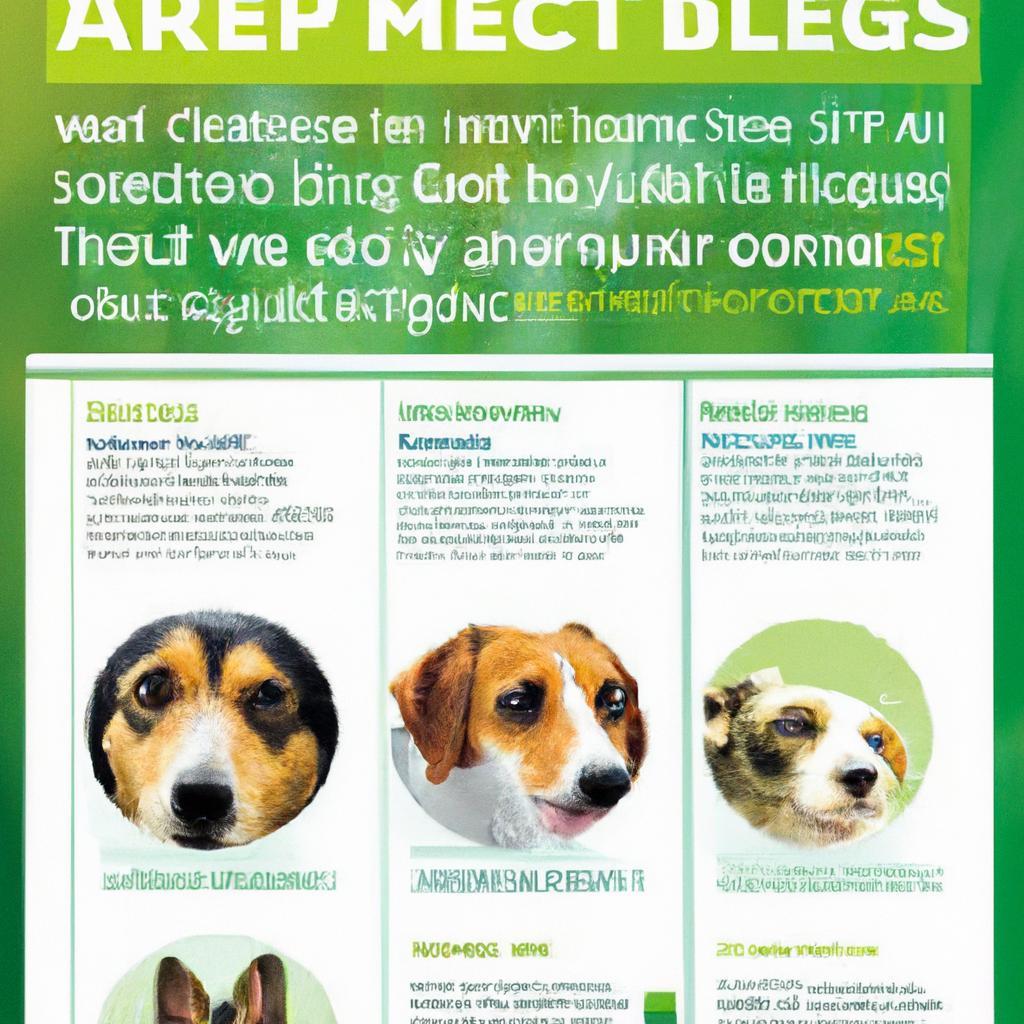Meet Max, a lovable Labradoodle who changed the life of his owner, Sarah, a lifelong allergy sufferer. When Sarah first brought Max home, she was skeptical. Could a dog really help with her allergies? To her surprise, Labradoodles are known for their hypoallergenic coats, which produce less dander and allergens. Max not only provided companionship but also brought joy and comfort without triggering Sarah’s allergies. If you’re considering a dog but worry about allergies, a Labradoodle might just be the perfect solution for you!
Contents
- Understanding Hypoallergenic Dog Breeds for Allergy Sufferers
- The Science Behind Allergies and Dog Dander
- Top Hypoallergenic Dog Breeds to Consider for Your Home
- Tips for Maintaining a Healthy Environment with Allergies and Dogs
- Q&A
Understanding Hypoallergenic Dog Breeds for Allergy Sufferers
For those who suffer from allergies, finding a furry companion can often feel like an impossible task. However, certain dog breeds are known for producing fewer allergens, making them more suitable for allergy sufferers. These breeds typically have hair instead of fur, which reduces the amount of dander and saliva that can trigger allergic reactions. Understanding these hypoallergenic breeds can help you make an informed decision when selecting your next pet.
Some of the most popular hypoallergenic breeds include:
- Poodle: Available in standard, miniature, and toy sizes, Poodles have a curly coat that traps dander and hair, preventing it from spreading in your home.
- Bichon Frise: This breed has a soft, curly coat that requires regular grooming, but it also produces less dander, making it a great choice for allergy sufferers.
- Portuguese Water Dog: Known for their energetic nature, these dogs have a dense, curly coat that is less likely to shed, helping to minimize allergens.
- Shih Tzu: With their long, flowing hair, Shih Tzus are not only adorable but also produce fewer allergens compared to many other breeds.
It’s important to note that no dog is completely hypoallergenic; however, these breeds are often better tolerated by those with allergies. Regular grooming and cleaning can significantly reduce allergen levels in your home. Bathing your dog frequently and using air purifiers can also help create a more comfortable living environment. Additionally, consider spending time with a breed before making a commitment to see how your allergies react.
When choosing a dog, it’s essential to consider your lifestyle and the specific needs of the breed. Some hypoallergenic dogs require more exercise and mental stimulation than others, so it’s crucial to match a breed’s energy level with your own. By doing thorough research and possibly consulting with an allergist, you can find a canine companion that not only fits your lifestyle but also minimizes allergy-related issues, allowing you to enjoy the unconditional love that a dog brings.
The Science Behind Allergies and Dog Dander
Understanding the relationship between allergies and dog dander is crucial for potential dog owners, especially those who suffer from allergies. Dog dander, which consists of tiny flakes of skin shed by dogs, can trigger allergic reactions in sensitive individuals. These reactions occur when the immune system mistakenly identifies harmless proteins found in dander, saliva, and urine as threats, leading to symptoms such as sneezing, itching, and respiratory issues. This immune response is a complex interplay of genetics and environmental factors, making it essential to choose the right breed if you’re prone to allergies.
Interestingly, not all dog breeds produce the same amount of dander. Some breeds are considered more “hypoallergenic” than others, meaning they are less likely to trigger allergic reactions. These breeds typically have hair instead of fur, which reduces the amount of dander released into the environment. Additionally, they often have a lower tendency to shed, further minimizing the allergens present in your home. When selecting a dog, consider breeds like Poodles, Bichon Frises, and Portuguese Water Dogs, which are known for their hypoallergenic qualities.
Moreover, the grooming habits of a dog can significantly impact the amount of dander produced. Regular grooming helps to remove loose hair and dander before it can accumulate in your living space. Owners of hypoallergenic breeds often find that consistent brushing and bathing can further reduce allergens. Implementing a routine that includes frequent cleaning of your home and using air purifiers can also help create a more allergy-friendly environment.
It’s essential to remember that individual reactions to dog dander can vary widely. While one person may thrive with a particular breed, another may still experience allergic symptoms. Therefore, spending time with a breed before making a commitment can provide valuable insight into how your body reacts. Consulting with an allergist can also help you understand your specific triggers and develop a plan that allows you to enjoy the companionship of a dog while managing your allergies effectively.
Top Hypoallergenic Dog Breeds to Consider for Your Home
When it comes to choosing a dog that minimizes allergy triggers, certain breeds stand out for their hypoallergenic qualities. These dogs produce fewer allergens than others, making them ideal companions for allergy sufferers. If you’re considering adding a furry friend to your home, here are some breeds that are known for being gentle on the sinuses:
- Poodle: Available in standard, miniature, and toy sizes, Poodles have a curly coat that traps dander and hair, preventing it from spreading in your home.
- Bichon Frise: With their soft, curly fur, Bichon Frises are not only adorable but also produce less dander, making them a popular choice for those with allergies.
- Portuguese Water Dog: This breed is known for its wavy coat that is similar to a Poodle’s, which helps reduce shedding and dander.
- Shih Tzu: With their long, flowing hair, Shih Tzus require regular grooming, which helps keep allergens at bay while providing a loving companion.
In addition to their hypoallergenic coats, these breeds often possess friendly and affectionate temperaments, making them wonderful family pets. Their playful nature and loyalty can bring joy to your home without the worry of triggering allergies. Furthermore, many of these breeds are adaptable to various living situations, whether you reside in a spacious house or a cozy apartment.
It’s important to note that no dog is completely hypoallergenic, but these breeds are known to produce fewer allergens. Regular grooming and cleaning can further reduce the presence of allergens in your environment. Investing in air purifiers and maintaining a clean home can also help create a more allergy-friendly space.
Ultimately, selecting a hypoallergenic breed can significantly enhance your quality of life while allowing you to enjoy the companionship of a dog. By choosing one of these breeds, you can experience the joy of pet ownership without compromising your health. Take the time to research and meet these breeds to find the perfect match for your lifestyle and allergy needs.
Tips for Maintaining a Healthy Environment with Allergies and Dogs
Creating a harmonious living space when you have allergies and a dog requires a proactive approach. Start by establishing a **regular cleaning routine** to minimize allergens. This includes vacuuming carpets and upholstery with a HEPA filter vacuum, dusting surfaces, and washing your dog’s bedding frequently. Consider using air purifiers equipped with HEPA filters in common areas to help trap airborne allergens, ensuring a cleaner atmosphere for both you and your furry friend.
Another effective strategy is to designate specific areas in your home as **pet-free zones**. This could include bedrooms or any space where you spend a significant amount of time. By limiting your dog’s access to these areas, you can significantly reduce the accumulation of pet dander and hair, which are common triggers for allergies. Make sure to communicate this rule consistently to everyone in the household to maintain a consistent environment.
Grooming your dog regularly is also essential in managing allergens. **Frequent baths** and brushing can help remove loose hair and dander before they have a chance to spread throughout your home. Opt for hypoallergenic shampoos and grooming tools designed to minimize shedding. Additionally, consider professional grooming services if you find it challenging to keep up with your dog’s grooming needs, as they can provide a thorough clean that helps reduce allergens.
Lastly, be mindful of your dog’s diet and overall health, as a well-nourished dog is less likely to shed excessively or develop skin issues that can exacerbate allergies. Consult with your veterinarian about the best diet and supplements to support your dog’s skin and coat health. A healthy dog not only contributes to a cleaner home environment but also enhances your overall experience as a pet owner, allowing you to enjoy the companionship of your furry friend without compromising your well-being.
Q&A
-
What breeds are considered hypoallergenic?
Hypoallergenic dog breeds are those that are less likely to trigger allergic reactions in sensitive individuals. Some popular hypoallergenic breeds include:
- Poodle
- Bichon Frise
- Portuguese Water Dog
- Shih Tzu
- Yorkshire Terrier
-
How do hypoallergenic dogs differ from other breeds?
Hypoallergenic dogs typically produce fewer allergens, such as dander and saliva, compared to other breeds. They often have hair instead of fur, which reduces shedding and minimizes the spread of allergens in the home.
-
Can I still be allergic to hypoallergenic dogs?
Yes, it is possible to be allergic to hypoallergenic dogs. While these breeds are less likely to cause allergic reactions, individual sensitivities vary. It’s essential to spend time with a breed before bringing one home to assess your reaction.
-
What steps can I take to reduce allergies with a dog?
To minimize allergic reactions while owning a dog, consider the following strategies:
- Regular grooming and bathing of your dog
- Using air purifiers to reduce airborne allergens
- Establishing pet-free zones in your home
- Cleaning frequently to remove dander and hair
choosing the right dog can significantly alleviate allergy symptoms. Breeds like Poodles and Bichon Frises offer hypoallergenic qualities, making them ideal companions. Embrace the joy of pet ownership without compromising your health—consider these breeds today!

大家好,我是彼得潘,專業的手法身體治療師。我喜歡探索和研究各種主題,並透過與人工智慧的合作分享專業、實用、有趣的文章。我們定期進行人工審核,以確保內容的準確性。如果您發現文章中有任何不準確的地方,請隨時與我們聯繫,我們會及時糾正。您可以透過 [email protected] 與我們聯繫。



